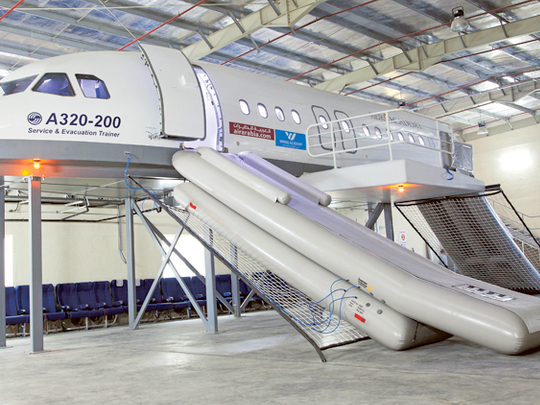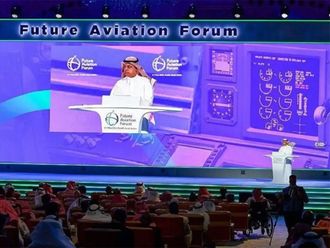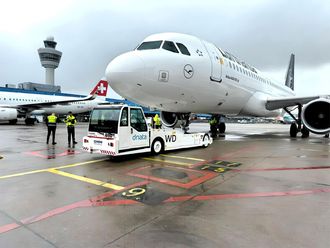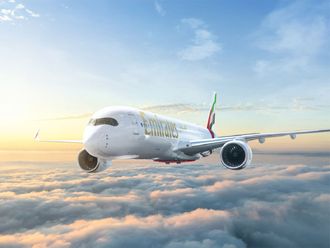
Dubai: A new state-of-the-art A320 cabin crew training facility was inaugurated in Sharjah on Monday by Shaikh Khalid Bin Essam Al Qasimi, Director of Sharjah Civil Aviation Department, Government of Sharjah.
The $3 million facility, operated by ACCL – a Sharjah-based company set up in December last year – has been launched to “offer a cost-effective safety training solution to operators who have small to medium-size fleets and who would prefer to [outsource training] rather than invest in their own,” Managing Director of ACCL, Ajay Chaukulkar, told Gulf News.
The A320 Safety and Emergency Procedures Trainer will be initially used exclusively by Air Arabia’s Wings Academy cabin crew for Initial and Recurrent training. Air Arabia’s training arm has signed a five-year deal with the centre.
Replica fuselage
A replica Airbus A320 fuselage, including doors, seats and emergency exits simulates any emergency scenario cabin crew are likely to face in the air from onboard fires to emergency evacuations, to prepare them for life working for an airline.
The Sharjah Airport International Freezone (SAIF)-based safety training centre also offers pilot incapacitation, and pilot safety and emergency procedures (SEC) training.
A full cabin crew A320 preparatory course will cost airlines between Dh8,000 and Dh10,000 per candidate for a three-week course, which the management says, is up to 60 per cent less than what other airlines charge for their training facilities.
Chaukulkar said the ACCL training centre is open to agreements with other carriers and that there are plans to eventually include pilot training at the Sharjah facility. “I’m going to invest in a [Boeing] 737 next generation cabin crew trainer next and then move onto flight simulators [for pilot training], using both the A320 and the B737 models – that’s very much in the pipeline.”
Cabin crew training
ACCL is also working to create in-house preparatory training schemes for prospective cabin crew looking to learn the essentials of the trade before applying to become a cabin crew member of an airline.
ACCL’s facility is the latest development in a concerted push in the Middle East to train more airline staff efficiently and quickly as the aviation industry continues to expand and evolve at breakneck pace.
Against the backdrop of frenetic global expansion and airline’s sudden realisation that they require fully-qualified staff to man their ever-growing fleets, cabin crew training has flown under the radar and is a no less important aspect of organic growth than pilot training.
Unsurprisingly, ACCL’s niche focus on cabin crew safety training is already garnering interest.
“We have got interest from many airlines in the region and also some from outside including Greece and Eastern Europe. And we are actually finalising [talks], their training requirements and how we can provide for them. I expect the facility to be used 24/7 three months down the line,” Chaukulkar said.












